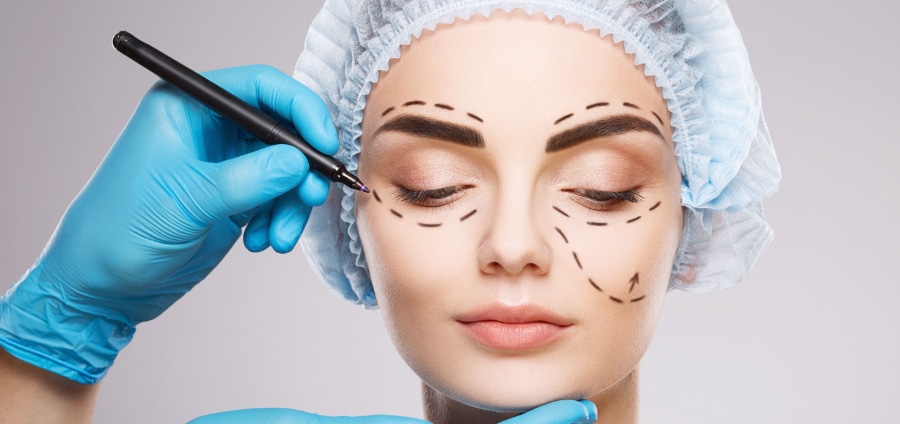Is Plastic Surgery Safe? How to Make Sure
Aesthetic plastic surgery has become safer and more accessible over the years, but there are still some risks in most cosmetic procedures. Despite access to better tools, more experienced specialists, and high-quality aftercare, surgery is still surgery, and there are many things that could potentially go wrong.
That said, the majority of modern reconstructive plastic surgery procedures are completed with no complications. If you want to maximize your chances of undergoing plastic surgery safely, there are a few best practices you’ll need to follow.
Verify the Certification of Your Plastic Surgeon
Plastic surgery safety is a topic that is incredibly important no matter what surgery you are pursuing. There are many plastic surgeons operating in the United States and abroad, but not all of them are appropriately certified for the cosmetic surgery procedures they perform. One of the best first steps you can take is making sure your qualified plastic surgeon is board certified by the American Board of Plastic Surgery.
The ABPS requires surgeons to acquire a minimum standard of qualifications, pass a test, and become recertified periodically. Dr. David Sieber at Sieber Plastic Surgery in San Francisco is Board Certified.
Get References and/or Read Testimonials
You’ll feel much more secure in your choice after getting personal recommendations for a board certified plastic surgeon, or after reading the testimonials of previous patients who have gone under the knife and been happy with the final results. Read reviews for this cosmetic surgeon online; are there any horror stories that make you think twice about working with this professional, or do most people seem thrilled with their results?
Review Your Surgeon’s Credentials
Most plastic surgeons these days have a website, and their website should have a biography or “About” section. Here, you’ll be able to read about the surgeon’s past education and experience. Where did they go to school? How long have they been practicing? If you can’t find any biographical information, it could be a red flag.
Determine Whether This Surgeon Has Hospital Privileges
When a hospital deems a physician qualified to use the equipment and facilities at the hospital, they are considered to have “hospital privileges.” This is a mark of confidence from a formal hospital committee, as well as peers in the medical field. Even if you end up having your procedure at a surgical center (and not a hospital), the hospital privileges are a good sign that your surgeon knows what they’re doing.
Understand All Risks and Complications
There are many plastic surgery procedures that sound appealing, but different procedures carry different risks and potential complications; accordingly, some procedures may not be worth the risk. Even minimally invasive procedures carry risk. Do some research on your own and figure out what risks you may face. You’ll likely find that your procedure only comes with small, relatively rare risks of complication.
Next, ask your surgeon directly to review the risks and complications of your procedure with you. This should be done during your initial consultation. Your surgeon should explain the details of the procedure from start to finish, including what will happen before and after the cosmetic surgery. They should also explain what could go wrong, and what kinds of complications you might face.
If they don’t answer your questions directly, or if they simply assure you that everything will be fine, it could be a red flag; every surgical procedure has some level of risk, and it’s your right to know what that risk entails.
Understand Where Your Procedure Will Be Held
You don’t need to have your surgical procedure in a hospital to be assured that it’s safe. Instead, you should ensure your location is an accredited ambulatory facility; accredited locations must undergo regular internal and external inspections by third-party credentialing agencies.
To pass certification tests, ambulatory facilities must maintain good operating standards, modern equipment, adequate staff training, and impeccable cleanliness. If your surgeon recommends a facility that is not certified, you should not proceed.
Ask About the Anesthesiologist
While the plastic surgeon will be the one directly responsible for completing your cosmetic surgery, the anesthesiologist will be the one responsible for making sure your entire surgical experience is relaxed and pain-free.
Good plastic surgeons will only work with anesthesiologists who match their level of experience and professionalism, so ask about the anesthesiologist they use. You may also be able to meet them before the cosmetic surgery. This anesthesiologist should be board certified.
Consider Getting Additional Direction and Advice
If you aren’t convinced that your plastic surgeon is reliable or safe, or if you simply want another opinion to help you feel more secure, feel free to talk to another professional in the industry. Talking to another plastic surgeon, or your primary care physician, can help you make up your mind about whether this plastic surgeon is the right fit for you.
Understand and Follow All Preliminary Requirements Recommendations
Your surgeon should work with you before the procedure to make sure you understand how to prepare for cosmetic surgery. For example, most cosmetic surgeries require you to fast, avoiding eating and drinking, for a specified period of time before the procedure begins. If you smoke, it’s a good idea to stop (at least temporarily) days or weeks before the reconstructive surgery, as cigarettes can interfere with the administration of anesthesia. It is important to be fully aware of all preparation, even when you are undergoing an outpatient surgery.
Before undergoing surgery, you’ll also need to be open and honest with the anesthesiologist about your health habits, whether you use alcohol, whether you use recreational drugs, and what your past experiences with anesthesia have been like. If you follow your surgeon’s instructions as closely as possible, you’ll be set up for the safest possible circumstances.
Follow Instructions During Your Recovery Period
Most procedures require you to follow specific instructions in the first 24-48 of plastic surgery recovery, such as resting or treating the affected area. Make sure you talk to your plastic surgeon and understand these instructions thoroughly before the procedure begins.
Questions and Answers
What are the risks of plastic surgery?
Potential surgical complications encompass anesthesia-related issues like pneumonia and blood clots, infection at incision sites, exacerbating scarring, and fluid accumulation beneath the skin.
Is it OK to have plastic surgery?
Plastic surgeries offer medical and psychological benefits, enhancing confidence and self-esteem. Yet, they entail physical risks and may affect mental health negatively if results disappoint or if untreated mental health conditions persist.
What is the survival rate of plastic surgery?
A recent study in Plastic and Reconstructive Surgery — Global Open, the official open access journal of the American Society of Plastic Surgeons (ASPS), reports that the mortality rate for tummy tuck surgery is about one in 13,000, while for liposuction, it is approximately 1.3 in 50,000.
Book Your Plastic Surgery Consultation

References
https://www.abplasticsurgery.org/
https://www.ascassociation.org/aboutus/relatedorganizations/accreditationorganizations




